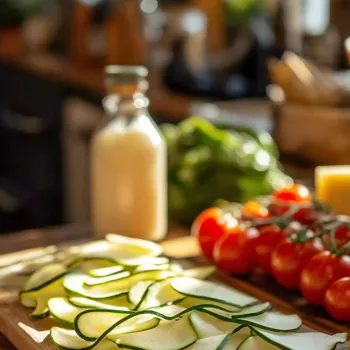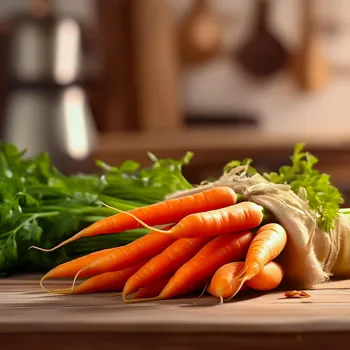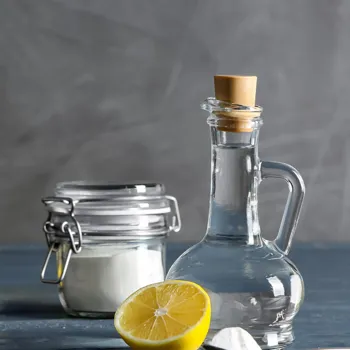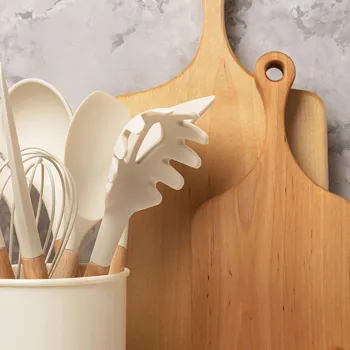Master essential cooking skills & elevate your dishes! Knife skills, seasoning, cooking methods, stock, sauces, baking basics - learn more!
Namaste doston! Are you someone who loves spending time in the
kitchen? Do you dream of whipping up delicious and impressive meals for your family and friends? Well, you don't need to be a professional chef to create culinary magic at home.

With a few essential skills under your belt, you can transform your home cooking from basic to brilliant. Forget fancy ingredients and complicated techniques, we're talking about building a solid foundation that will empower you to cook with confidence and creativity.
So, grab your apron, and let's dive into the 10 essential skills that every home cook should master! These skills will equip you to make restaurant level food at home.
Knife skills are crucial for efficient and safe cooking
First and foremost, Knife Skills are paramount. A sharp knife is a cook's best friend, and knowing how to wield it safely and efficiently is crucial. Learning basic cuts like dicing, mincing, and julienning will not only make your prep work faster but also ensure even cooking.

Think uniformly chopped vegetables that cook at the same rate, making a noticeable difference in the final dish. Start with practicing on simple vegetables like onions and carrots, gradually progressing to more challenging ingredients.
Invest in a good quality chef's knife and a honing steel to keep it sharp. Remember, a dull knife is more dangerous than a sharp one! Moreover, watching online tutorials or attending a basic knife skills workshop can be incredibly beneficial.
You'll be surprised how much quicker and more enjoyable cooking becomes when you're confident with your knife skills. Precision in vegetable cutting helps aesthetically, that also enhances the taste and flavour.
Proper knife control, using the appropriate force, is essential for food safety and hygiene.
Master the art of seasoning to elevate dishes with spices and herbs, creating flavorful delights
Next up, it's about mastering the art of Seasoning. Seasoning is what elevates a dish from bland to extraordinary. It's not just about adding salt and pepper; it's about understanding how different spices and herbs interact with each other and with the ingredients you're cooking.
Experiment with different spice blends like garam masala, sambar powder, or even simple combinations like paprika and cumin. Learn to taste as you go, adjusting the seasoning according to your preference. Don't be afraid to try new things!
A good understanding of seasoning can transform even the simplest ingredients into a flavourful delight. The use of spices, herbs and the flavour palette are extremely important to season the food. So always remember to keep your spice box ready before any culinary process.
This will add flavour and enhance the essence of your dish, like a symphony of flavours.
Importance of understanding cooking methods for skilled cooks
Thirdly, for a skilled cook, it is important to know the cooking methods. Understanding how to cook your ingredients is key to achieving the desired texture and flavour.

Whether it's sautéing vegetables to perfection, simmering a flavorful dal, or baking a fluffy cake, each cooking method requires a different approach. Learn the best techniques for cooking different types of food.
For example, vegetables often benefit from a quick sauté or roast to retain their crispness and nutrients, while lentils need to be simmered low and slow to become creamy and tender.
Don't be afraid to experiment with different cooking methods, and you'll soon develop a feel for what works best for certain ingredients. Cooking methods such as Steaming, simmering, sauteing are essential to be noted for skilled cooking.
You have to understand which method will best amplify the food.
Homemade stock elevates dishes; learn to make your own
Fourth, an expert cook will always know the importance of Stock. Homemade stock is the secret ingredient that can transform your soups, dals, and sauces from ordinary to extraordinary.

Instead of relying on store-bought bouillon cubes, learn to make your own stock using vegetable scraps, herbs, and spices. It's surprisingly easy and economical, and the flavour is infinitely better.
Simply simmer the ingredients in water for a few hours, strain, and store the stock in the refrigerator or freezer. You can even customize your stock with different herbs and spices to suit your taste.
A good stock adds depth and richness to your dishes that you simply can't get from store-bought alternatives. So, next time you're chopping vegetables, save those scraps and make a pot of stock!
Homemade stock is always better because you are adding all the essential ingredients using your own style. This will differentiate you from the rest.
Master basic sauces to elevate dishes & customize flavors
Fifth, an experienced chef always understands the importance of basic Sauces. Master a few basic sauces, and you'll be able to create a wide range of dishes with ease.

Whether it's a classic tomato sauce for pasta, a creamy white sauce for casseroles, or a tangy chutney for snacks, sauces add flavour, moisture, and texture to your cooking. Learn the fundamentals of making these sauces from scratch, and you'll be able to customize them to your liking.
Experiment with different herbs, spices, and vegetables to create your own unique signature sauces. Imagine elevating a simple vegetable stir-fry with a homemade peanut sauce or adding a touch of elegance to a grilled paneer with a vibrant mint chutney.
With a repertoire of sauces at your fingertips, you will be able to play with the recipes. Sauces are basically flavour enhancers which will give richness to your dish.
Baking basics are essential for cooking vegetarian dishes
Sixth and finally, Baking Basics are very important as well. Baking might seem intimidating, but it's actually quite simple once you understand the fundamentals. Start with easy recipes like muffins, cookies, or simple cakes. Pay close attention to measurements and follow the instructions carefully.

Baking is a science, so precision is key. Learn about different types of flour, leavening agents, and fats, and how they affect the final product. Don't be discouraged if your first attempts aren't perfect. Baking is all about practice, and with each batch, you'll learn something new.
So, preheat your oven, grab your mixing bowls, and get ready to bake some delicious treats! These six skills are important while cooking vegetarian especially.
AI Generated Content. Glance/InMobi shall have no liability for the content










